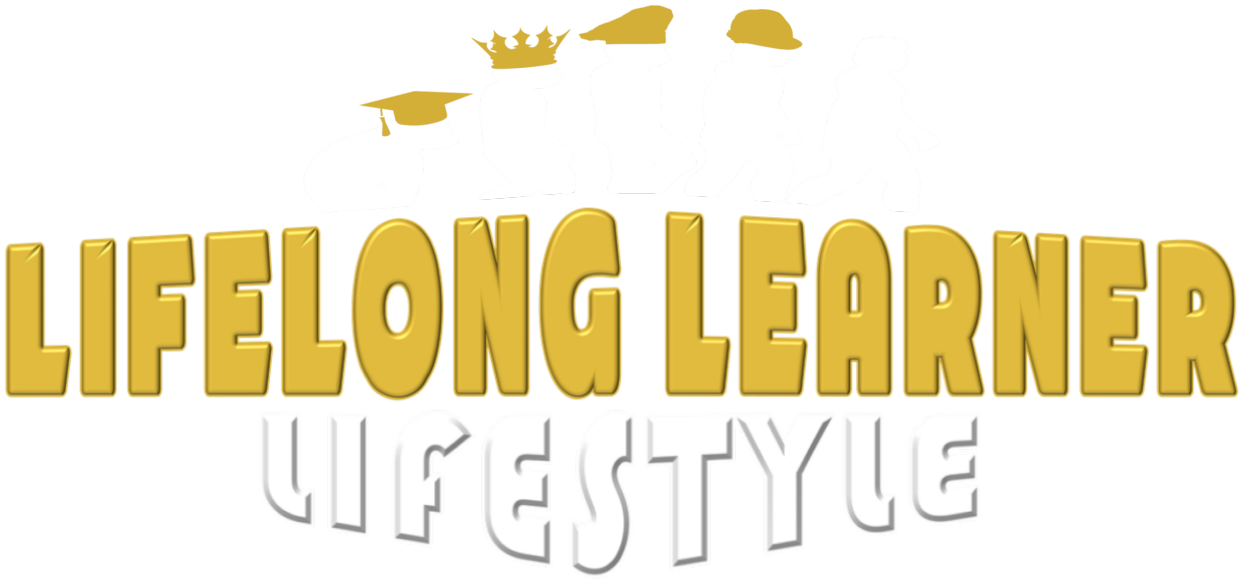11 Universal Steps To Combat Information Age Ailments

Information Age Ailments (IAAs) are self-destructive behaviours that stifle personal growth, partly enabled by the abundance of information and technological advancements. As the internet grows, so does the amount of quality information and the need to consume it. The more electronic devices, the easier it is to access information.
I found myself on the brutal receiving end of these information age ailments, and I do not wish it on anyone. It’s an endless vicious cycle that can lead to a meltdown. IAAs include Information Overload, Information Junkie, Learners Syndrome, Analysis Paralysis, Credulous Behaviour and Perfectionist Procrastination. Below are different ways I find to be effective when combating information age ailments.
Consciously And Deliberately Cap The Amount Of Information You Consume
People are not going to stop writing articles, making videos and doing podcasts – that’s a given. It’s up to you to evaluate the information and find out if it’s worth your time. You must be careful not to take too much in and not knowing what to do with it.
You must have a purpose, a limit and discipline when you’re consuming information. Pre-set a stop button in your mind that alerts you when you’re going into overload. Better yet, time yourself and make sure you immediately stop when that alarm goes off.
Don’t veer off your main goals because you’ll end up consuming irrelevant information. Keep things simple, maintain a clear mind and always prepare for the next day. When you go off on rabbit holes that you find informative, try to apply the information somehow.
Break Down Large Projects Into Smaller Doable Parts
Breaking down large projects into smaller manageable parts is a well-known technique in project management. You’ll be able to put timescales on your project and also track landmarks. That’s because you have everything mapped out from the get-go.
Tackling a big project is not easy. You might feel overwhelmed from the beginning and eventually quit. A lot of unfinished projects are rotting inside drawers, unable to see the light of day. Taking small manageable steps until you complete the project is the best way to do it.
Once you get a grip on how this process works, you can apply it to anything and everything. Make a habit of doing this, even with daily chores and notice how your life changes for the better. Breaking down projects allows you to pinpoint and deal with bottlenecks quickly and easily, making you efficient.
Take Breaks And Downtime From Electronic Devices
I don’t need to stress all the negative impacts caused by prolonged engagements with electronic devices. Firstly, you put your progress, health and relationships at risk by exhibiting this type of behaviour.
You must find ways to clear your mind after long periods of facing the screen, from smartphones to televisions, I mean anything with a screen. You must use these devices for something positive and not just for entertainment purposes only. It will come back to haunt you when you realise that everyone around you has progressed and you haven’t moved an inch.
Walk outside in nature and take deep breaths of the fresh air. Meet and chat with different people or visit friends occasionally. Make sure everything you do is within the laws of your resident country because of the current pandemic. Stay safe, be healthy and call your family regularly.
Only Keep Track Of Significant Milestones
Keeping track of everything can all become too much. I suggest you only record important milestones and a summary of how you got there. It also allows you to have reference points should any problems arise. Just like breaking down big projects into smaller parts, only tracking significant milestones enables efficiency.
By keeping track of only significant milestones, you leave your mind free of noise with room to breathe. One of the best ways to keep track of your progress in the information age is to start a personal blog. If you cannot record your progress for any reason, it’s wise to have a mental note of the direction you’re taking each day.
Be ruthless with yourself and make no compromises and remember, the more comfortable you are, the slower the progress. The only downfall to obsessive tracking is falling into the trap of perfectionism, so you must be very careful. That’s why I encourage only keeping track of significant milestones.
Master How To Balance Learning And Taking Action
If you’re reading this article, I presume you know that action without knowledge is foolishness. It’s also true that having lots of knowledge and no action is wastefulness. You must know how to balance learning and taking action to succeed.
Learning something and practically applying it in the real world is the only way you can improve. In other words, the best way to balance learning and action is by doing both at the same time. It doesn’t matter whether it’s at a job or home – the law is universal.
The first thing is knowing your best learning style and then finding the best resources. I believe to achieve the perfect balance between learning and doing is to apply the 80/20 rule. That means you must spend 80% of your time doing and 20% learning because taking action is more important.
Be Clear On How You Are Going To Use The Information
You must ensure the information is in alignment with your immediate or long-term goals. The next question is whether the information is actionable immediately or within the short run and if so, then it’s mostly worth pursuing.
You can make this easier by having all your goals, desires and strategies in place so that you can match them with the information you consume. If you find yourself consuming information that has nothing to do with your plans, goals or life purpose, you must stop immediately.
Clarity saves time and money because you’ll be only consuming what you need. Be it for a project or just becoming well-versed on a particular topic, you must be clear on why, how and what you’re going to use the information for.
Be Willing To Alter Your Standards
We all have principles we live by but sometimes find ourselves trapped within our creations. Altering your standards means making minor adjustments to accommodate growth. It also shows that you’re willing to work with others civilly in a respectful manner.
Altering your standards relieves you from perfectionism and procrastination. It also makes you aware of unrealistic expectations and that most people don’t even care about what you’re doing. So let go of trying to be perfect if you want to be successful. Rigidity is a well-known killer of progress.
Perfectionists are their own worst critics, so do yourself a favour, be your number one fan and grow. Altering your standards doesn’t mean lowering them, but knowing that nothing lasts forever. You must be willing to accept that you’re not the be-all and end-all but a part of some.
Learn To Trust Your Gut
Your gut instinct is like a guidance counsellor who always wants what’s right for you. If you don’t listen, you might end up in the gutter and find it difficult to get out. There are ways you can learn to listen to your gut instinct, and if done correctly, you’ll be able to pull off some incredible feats.
When you feel like saying no to someone, but you don’t, I liken that to self-harm. It’s okay to say no at times because you’re only human, and it’ll make you feel better. Our bodies have ways of telling us if something is off or on, you must learn to listen because it can be a matter of life and death or success and failure.
You can obtain intellectual depth and insight by listening to intuition. Next time when you’re facing an important decision, look out for bodily reactions like sweaty palms, tingling sensations and lightheadedness, etc. Your body will let you know whether what you’re getting into is good or bad.
Take Your Time On Big Decisions
Don’t dwell on decisions that have less impact on your life, on the contrary, take as much time as you need when making life-changing decisions. Deciding what to wear shouldn’t be given as much time as choosing a career. You’d rather spend your energy on something worthwhile, not on trivial nonsense.
If you’re confused, you mustn’t shy away from asking for help because no man is an island. Try to have fun when making big decisions, be flexible and try different ways to reach your goals. Once again, you must learn to trust your gut feeling when it comes to making big decisions.
On the other hand, making a big decision requires you to reflect, gather information and analyse it. You’re the captain of your ship, and it’s all on you to steer it in the right direction. As Mark Manson puts it, make decisions based on the path that leads to the least regret in the future.
Acquaint Yourself With Information Age Navigation Skills
The general information age navigation skills you need are communication, creativity/curiosity, teamwork/collaboration, and problem-solving/critical thinking. We now live in a knowledge-based economy, and most companies and entrepreneurs rely on those skills to thrive.
Information age navigation skills reduce anxiety and ease technophobia. To stay relevant in this era, you must know your way around computers in general. You don’t have to be a master but learning the basics is essential to survive in the digital age. Relevant digital skills will give you an added vantage point in today’s world.
In a knowledge society, you must learn independently and understand how to manage knowledge. With knowledge rapidly changing and information sources increasing, it’s up to you to keep up. You must know how to search, assess, apply and disseminate information within a specific setting.
Establish A Daily Spiritual Practice
Many people have or are becoming spiritual in the broader sense of the word. Most of us have finally come to realise the power the universe harbours. Our connection with nature and others is something of great significance. A holistic approach is what you need to lead a fulfilling life. That means balanced nurturing of the mind, body and spirit.
By tapping into your spiritual side, you consequently cut off surrounding noise and cultivate a peaceful mind. In today’s world of non-stop action and speedy apps, you must find time to calm your mind daily. Start by practising meditation or mindfulness and then gradually expand your spirituality.
Spirituality is a journey best felt by the individual experiencing it. Don’t be afraid to read, research and practise different spiritual activities. There are many ways to find out what stimulates you spiritually. You’ll be surprised but ready when everything starts to make sense and things seem to go your way.





